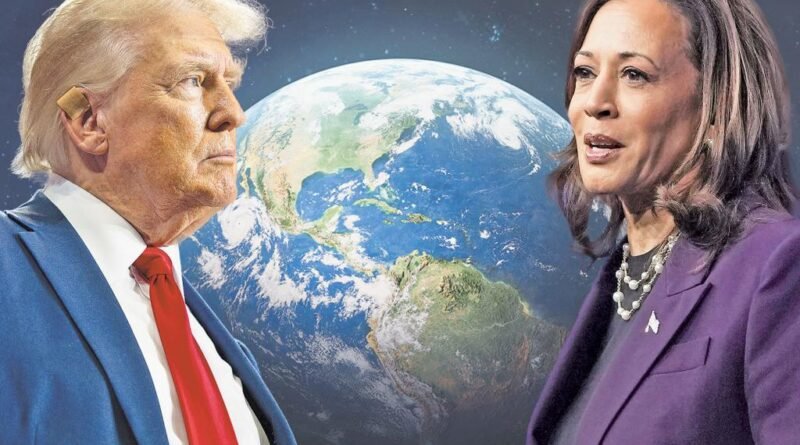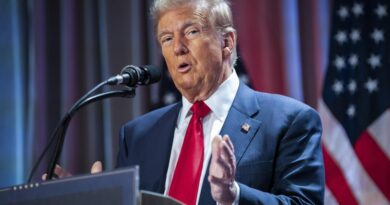Potential Differences in Foreign Policy Approaches Between Harris and Trump if Elected

Kamala Harris is the presumed Democratic frontrunner — despite receiving zero votes from the electorate, an unsuccessful 2020 presidential campaign, and challenges in articulating her policy decisions during her vice presidency.
Nevertheless, the 47th president will need to navigate numerous global challenges involving China, Russia, Iran, and Israel-Palestine. How would Harris’s foreign policy compare to Trump’s in this context?
Since becoming the likely nominee, Harris’s initial foreign policy actions have been characterized more by her absences than her actions.
She was notably absent from Israel Prime Minister Netanyahu’s speech to Congress, which is typically attended by the vice president. Instead, Harris chose to address a historically Black sorority event in Indiana.
Additionally, Harris did not outline any foreign policy objectives during her first campaign rally in Wisconsin, opting instead to acknowledge her boss and pledge to prosecute Trump’s criminal record. This stands in stark contrast to Trump’s acceptance speech at the Republican National Convention, where he vowed to end international crises and touted his achievements.
Harris’s foreign policy experience, as a lawyer by training, is limited, highlighted by record illegal border crossings during her role as Biden’s unofficial “border czar.”
If Harris were to win the 2024 election, she is expected to largely follow Biden’s foreign policy approach towards Iran, China, and Russia, while potentially adopting a less sympathetic stance towards Israel to appease her party’s progressive base. Her foreign policy agenda would likely be guided by her chief foreign policy adviser, Philip Gordon, a former Obama State Department official involved in the Iran nuclear deal negotiations.
In contrast, Trump promises a quick resolution to the conflict in Gaza and emphasizes Israeli-Saudi normalization as top priorities in the Middle East. The Abraham Accords would remain a significant achievement under a potential second Trump term.
Harris, while supportive of Israel’s right to self-defense, has a different approach to Gaza than both Biden and Trump. Her focus is on achieving a ceasefire to pave the way for Israeli-Palestinian peace, with efforts to humanize Palestinians and advocate for peace.
Trump, on the other hand, would employ a more assertive strategy against Tehran, reinstating maximum pressure to address Iran’s nuclear program and regional activities.
While the Biden-Harris administration aimed for a diplomatic resolution with Iran, Tehran’s actions continued to disrupt the region. Harris’s response to Iran’s involvement in conflicts was limited to urging restraint, which did not prevent further escalations.
A potential second Trump term would likely focus on intensifying pressure on Iran, in contrast to Harris’s diplomacy-driven approach. The aim would be to curb Iran’s destabilizing activities in the region.
On the Ukraine-Russia conflict, Harris aligns with Biden in supporting Ukraine against Russian aggression and maintaining a pro-NATO stance. Justifying the importance of supporting Ukraine, Harris has emphasized the need to provide assistance to the country.
In contrast, Trump’s running mate JD Vance opposes providing unconditional support to Ukraine, viewing the situation differently and advocating for different approaches.
Regarding China, Harris is likely to follow a bipartisan approach in managing Beijing’s influence, especially concerning Taiwan and trade relations. Trump, in contrast, might escalate trade tensions through tariffs and reinforce protectionist policies.
Trump’s diplomacy style tends to be more aggressive than Harris’s, with a focus on leveraging strength in negotiations. Harris’s approach is expected to be more diplomatic, at least based on her actions thus far.
Jonathan Harounoff is the author of the upcoming book “Unveiled: Inside Iran’s #WomenLifeFreedom Revolt.”



